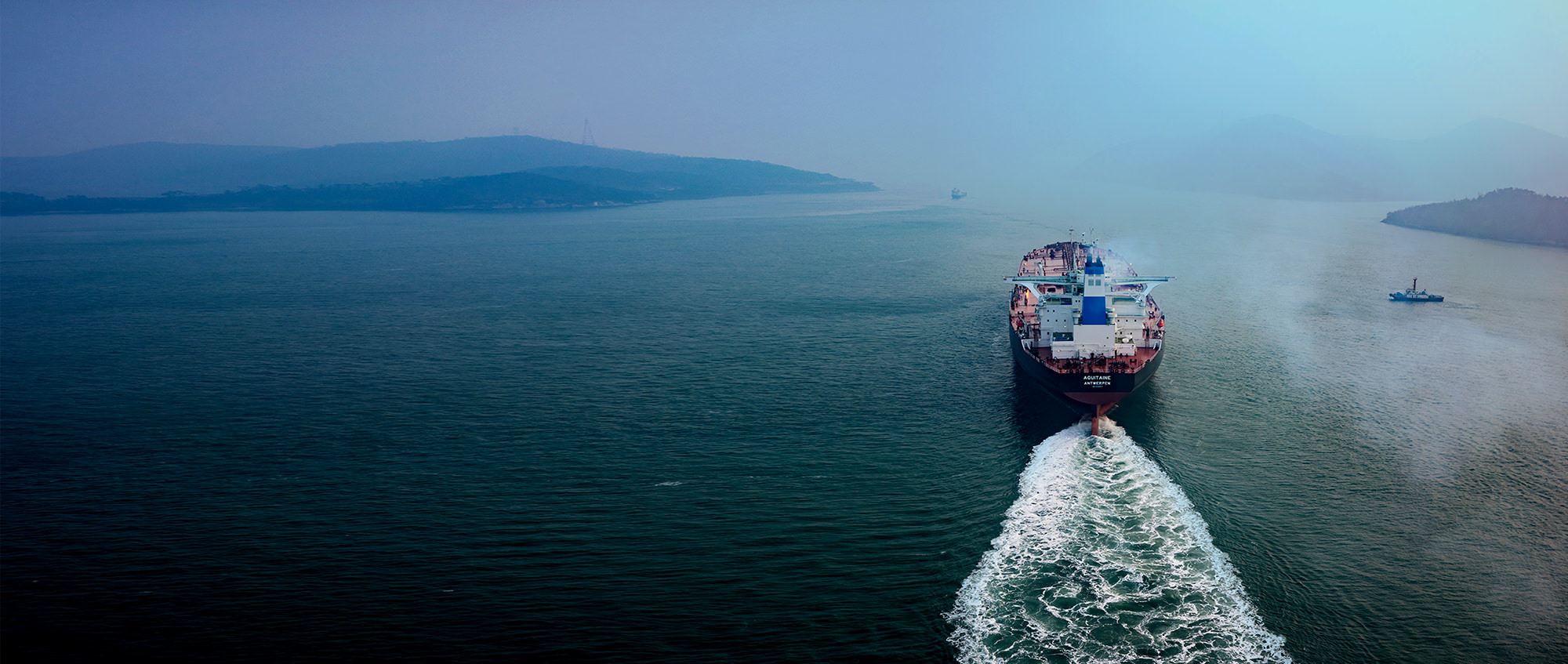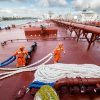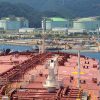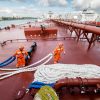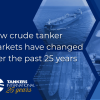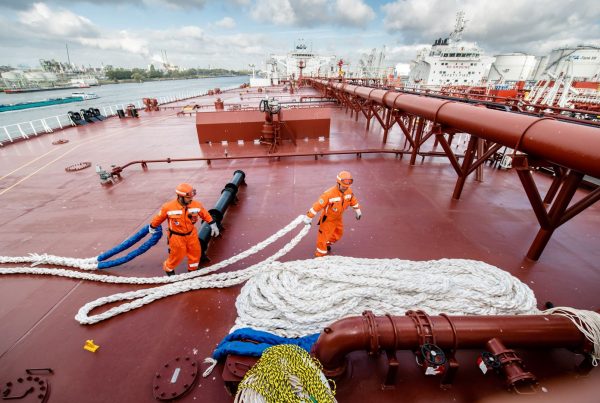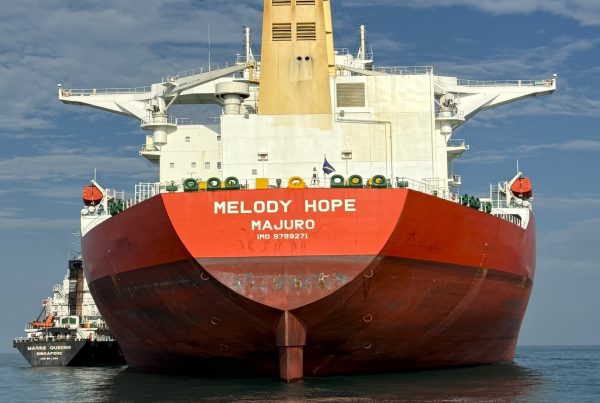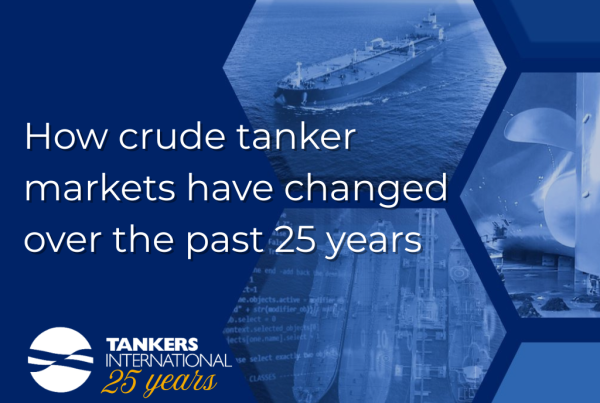In a nutshell, what is your role at Tankers International?
I sit on the chartering desk at Tankers International (TI) along with a dedicated team of 4 charterers; 2 in London and 2 in the US. I am responsible for negotiating and facilitating fixtures for the VLCCs within the pool, the size of which means working with a large range of customers and, therefore, a large and diverse cargo portfolio.
It is the combination of our team’s collective hard work and our global presence that achieves better scheduling of the fleet and ultimately a higher laden versus ballast ratio for all the vessels. I also ensure that the voyages are profitable, are in line with our forecast for the market going forward, and that they adhere to international regulatory compliance standards.
How did you get here?
Shipping has always been part of the family, with my father working in the clean tanker segment for 45 years. This close connection to shipping inspired me to study Maritime Business at Southampton Solent University. Straight after getting my degree, I got a job at Poten & Partners, beginning in the operations department before working my way onto the VLCC spot desk. I really enjoyed putting the theory I learnt at university into practice. The dynamism and high stakes of the VLCC market are an added bonus.
Knowing that I wanted to remain in, and pursue the VLCC sector, I was very keen to work at TI, given that it is the world’s largest VLCC pool. It truly is a global role – from waking up with messages from brokers in Singapore, to working on quotes for cargos for Asian clients, and closing the day with the Americans. It is an industry where no one day is the same and that’s what makes it such an exciting and enjoyable one to be part of.
Diving deeper into your role, how does data support you and therefore, the commerciality of the pool?
Data gives us critical insights into the market and the current rates.
Having a database with 100,000 historical VLCC fixtures, each with 40+ data points also means that, as a chartering desk, we’re completely in tune with the market. Being informed about market fixtures gives us a solid starting point for our own deals, allowing for smoother negotiations.
Additionally, this knowledge empowers us with accurate market value and prevents us from being lowballed. As the saying goes, knowledge is power!
The historical data that TI has collected on vessel performance is immensely helpful when setting up a fixture. We’re able to look at the previous performance of the vessel and anticipate any issues that it might run into. This enables us to be proactive in scheduling any repairs that may need doing instead of going in blind and being on the back foot.
For the industry to truly unlock the power of data, companies must invest in training staff to understand it. At TI we do just that but, as an industry, we mustn’t underestimate how important it is to deploy proper training for people to effectively collect, analyse, and apply data insights.
How has TI’s approach to fixing vessels changed over the past 2 years
We see fixtures as providing not only profit, but also valuable data points. TI has been collecting data since its inception in 2000. Integrating data into decision-making has always been at the core of the business. However, since I joined two years ago, TI’s organisation of its data use has been continuously improving.
In this time, as a commercial team and working with our data analyst Aaron Fu, we’ve introduced a bespoke forecasting model using proprietary data and an in-house dashboarding tool. This has been a game changer in providing us with data-backed insights when looking at ship availability and cargo demand.
I’ve seen a shift in priority when it comes to the use of data at TI. Whilst industry connections are, and always will be important, there’s now a greater emphasis on the chartering desk using data than there was previously.
That said, relationships remain critical in any business and particularly in this industry. We have great relationships with leading NOCs and oil majors who often come to us direct with the cargoes they want to fix and we want to be fair and reasonable. We negotiated in good faith a standard set of terms with many of our frequent customers, which has increased efficiency and productivity during pre/post fixing, as well as protecting the interest of our Pool partners
When you combine our relationships with our economies of scale, plus using data to provide market insight and inform decisions – this is a killer combination delivering profitable journeys for pool partners and reliability for charterers.
How does Tankers International stand out among its competitors?
Let’s be straight – in shipping, size matters. We have one of the largest independent VLCC fleet sizes globally of modern, sophisticated tonnage. As a result, we can unlock economies of scale through our volume negotiations, and administrative costs associated with running the fleet. Furthermore, a large fleet allows for improved scheduling and gives access to a greater diversity of cargoes which means better financial performance.
Secondly, your fleet is only as good as the people you hire and the chartering, operations, and senior team have the best interests of our stakeholders in mind. In my team especially, we emphasise trust and transparency in our dealings to ensure the price is right.
Finally, while the industry is still figuring out how best to collect and use data, at TI we have powerful data, in large volumes, and we sure know how to use it! Our competitive edge is our data combined with the talent in our organisation that interprets it effectively. We recognise that we can’t have either one or the other; we must use both human talent and data together to truly leverage powerful insights.
 Jamie Ranger, Chartering Executive
Jamie Ranger, Chartering Executive


